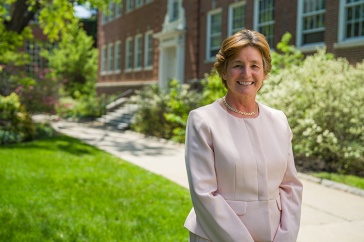Citizenship status is the main reason Hispanic children are less likely to have health insurance than black or white children, according to new research from the Carsey School of Public Policy at the University of New Hampshire. Noncitizen Hispanic children are nearly three times more likely to be uninsured than Hispanic children living with citizen parents.
The new research was conducted by Michael Staley, a research assistant at the Carsey School and a doctoral candidate in sociology, and Jessica Carson, a vulnerable families research scientist at the Carsey School.
“Providing better access to coverage to Hispanic children is key to closing the uninsured gap among minors,” the researchers said. “Our findings reveal a complex landscape of uninsurance among Hispanic children that extends beyond citizenship status alone; in fact, the insurance status of parents seems to be the most salient factor in predicting whether or not a Hispanic child will be insured.” Hispanic children who do not have an insured parent are seven times more likely to be uninsured than Hispanic children with at least one insured parent.
According to the researchers in 2014 only 90.3 percent of Hispanic children had health insurance, leaving more than 1.7 million uninsured. In comparison, 95.4 percent of non-Hispanic white children and 95.3 percent of black children had coverage.
The researchers also found that children in states that expanded Medicaid are less likely to be uninsured than children in non-expansion states, although low and moderate income children are more likely to be uninsured regardless of state expansion status.
The complete report is available at https://carsey.unh.edu/publication/hispanic-child-insurance.
-
Written By:
Erika Mantz | Communications and Public Affairs | erika.mantz@unh.edu

















































